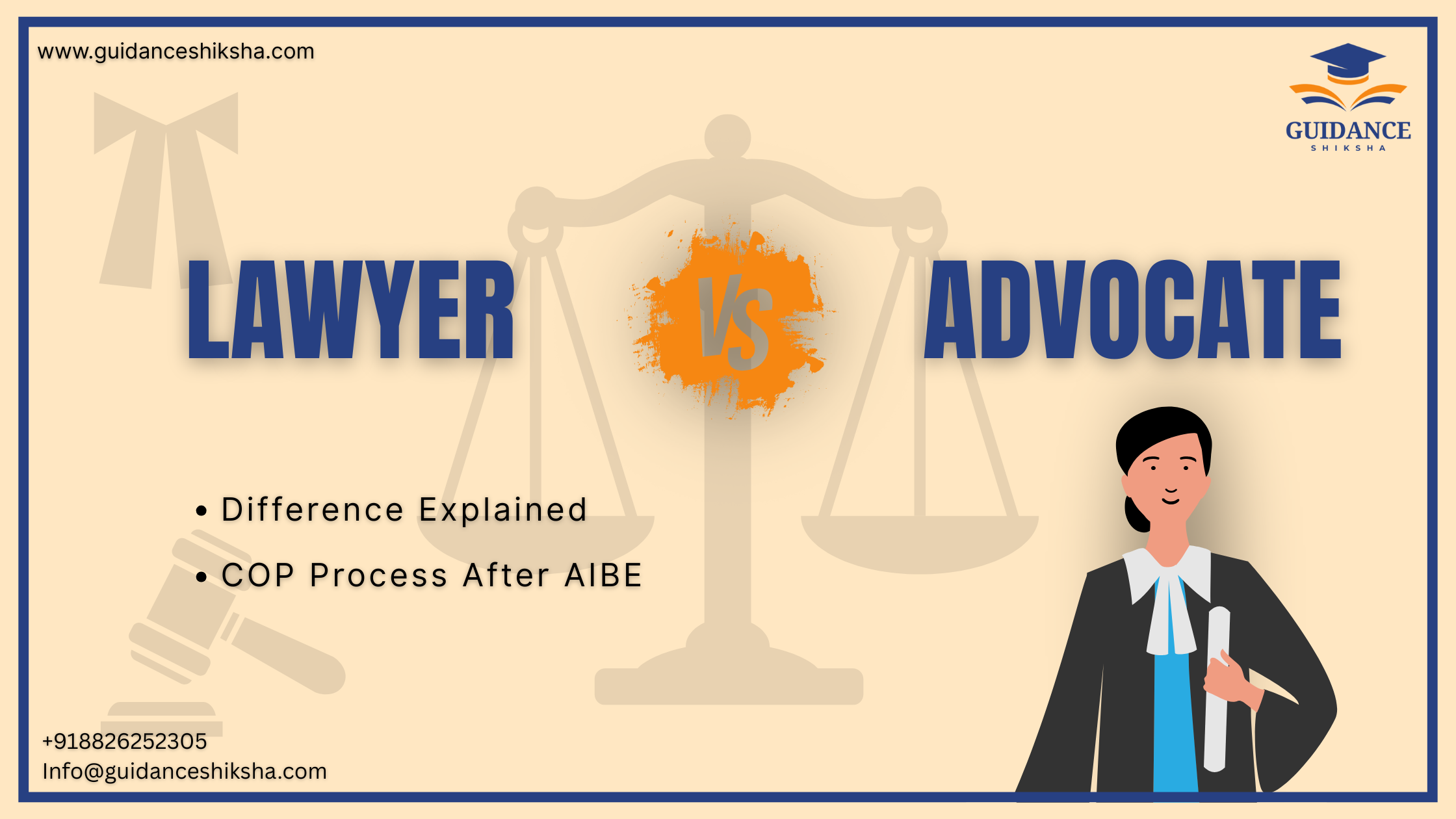
Introduction :
See, if you study law in India, then you are regarded as a lawyer. If you study the same law as in England, then you are regarded as a barrister. The most basic example is Mahatma Gandhi, whom we call a barrister. The next word we are going to deal with is advocate. See, how do you progress from lawyer to advocate? You have completed law, now you have enrolled in your State Bar Council, so you have a temporary age, which you can use for temporary practice. How will you make it permanent? If you appear for the Bar Council of India exam, which is your All India Bar Examination, then after completing law, you clear the exam AIBE conducted by the Bar Council of India and you are enrolled in the State Bar Council. Now you will be regarded as an advocate and through this, you are issued a certificate of practice.
The difference between a lawyer and an advocate in India :
So basically, now you have a permanent license to practice law and now you can represent clients in court. Next, we will deal with the advocate. We have already seen who is this person who has completed law and in BCI, this Enrolled in BCI That means after clearing All India Bar Examination you have Certificate of Practice Now you are authorized to appear in court You can represent clients in The court, the second term is senior advocate, as the name is indicating senior advocate, who will designate them, either the Supreme Court or the High Court of the state in which you are enrolled will designate them, their eligibility is at least 45 years, next what is that they should have at least 10 years of practice, the dress count of these people is also different, the next term we are going to study is advocate on record, now these are of a total different level, advocates on record are those advocates who represent the Supreme Court, basically those who practice in the Supreme Court are advocates on record, they have a separate examination, see anyone can do the drafting, anyone can represent, but the filing which will be done, be it an application, be it an affidavit, be it any kind of petition, the Supreme Court will get the filing done separately for them. The examination is conducted.
What is the basic eligibility?
Five years in total, five years out of which four years of experience in any court and one year of experience under any already advocate on record. So, what did we read here, Advocate, Senior Advocate and Advocate On record, the next thing we are going to read is Advocate General, Attorney General, Solicitor General.
Let's first start with the Attorney General. The Attorney General is regarded as the first law officer of the country. Basically, who is the legal advisor of our country? Attorney General. His appointment is through whom? His appointment is through the President and he represents the Central Government in legal matters. The next thing we are going to read is Advocate General. The Advocate General is the first law officer of the state. First law officer of the state. Who appoints him? Since he is the law officer of the state. His appointment is through the Governor. He represents the state government. So basically, he is called the legal advisor of the state. You will tell me in the comment section where and in which article the Attorney General and Advocate General are mentioned in the Constitution of India. Do you have any homework that both the Attorney General and Advocate General are mentioned in the Constitution? In which article is it mentioned next is Solicitor General Solicitor General is regarded as the second law officer of the country and basically assists the Attorney General. The next thing we are going to read is this. See, before reading this, we should know one basic thing that our law does not look at crime on a moral basis and it is based on the reformatory theory of punishment, plus somewhere it is based on retributive and deterrent at the same time, so that no one else can commit a crime.
How do we look at a crime?
The victim is representing the entire state on a whole. So, who does this representation of the state represent in criminal matters? The public prosecutor and who represents the government leader in civil matters. Today, we learned what a lawyer is. A lawyer has completed graduation in law or is practising law. Next Is your barrister barrister if you have done the same law from England, then you will be termed as a barrister next is advocate advocate is the one who has enrolled after completing the law plus he has cleared the exam AIBO conducted by BCI and he has a license and he You can represent in the court if a senior advocate has 10 years of experience. AOR Supreme Court AOR, they have a separate exam and they file in the Supreme Court. Next is your Attorney General, the first law officer of the country, who will represent the central government. Next was your Advocate General, the first law officer of the state who represents the state government. Next is your public prosecutor, who represents the victim in criminal matters and a government pleader, who represents the victim in civil matters. Today we learned all these words.
© 2026 Guidance Shiksha | All Rights Reserved